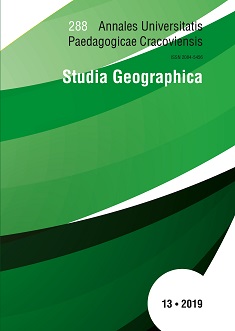Selected social marketing tools used in Opole hotels
DOI:
https://doi.org/10.24917/20845456.13.3Keywords:
hotels; Internet; Opole; social marketingAbstract
The results of the research indicate high effectiveness of Internet tools in the process of marketing communication in the hotel market. The Internet changes the market from place to place, to space, personal contacts of the buyer and seller are complemented by actions through the network. Above all, it improves the transactional position of the consumer by reducing the asymmetry of information. The advantages of using the Internet in marketing result primarily from its usable features, which mainly include: global range of impact, speed of reaction, multimedia character, lack of time limits, flexibility of action, interactivity and environmental friendliness. The aim of the work is to identify the main social marketing tools used in the Opole hotel market. The results of research conducted among employees and guests of Opole hotels indicate the decreasing importance of traditional media in marketing communication. Respondents pointed to the great importance of social media in this process. The most popular of them are: Facebook, Twitter, Instagram, Youtube and Pinterest. Other social tools included: e-mail newsletters, widgets, voting, discussion forums and podcasts. In the context of the obtained research results, one should expect further development and growing importance of social marketing on the hotel market.
References
Całka, A., Mróz-Gorgoń, B. (2014). Rola mediów społecznościowych w procesie komunikacji marketingowej – przykład marek modowych. Marketing i Rynek, 11, 123–131.
Jasiulewicz, A. (2014). Marketing społecznościowy na portalu Facebook jako forma komunikowania się firmy z rynkiem. Marketing i Rynek, 8, 473–479.
Juga, B. (2001). Media, komunikacja, biznes elektroniczny. Warszawa: Difin.
Kachniewska, M. (2015). Potencjał mediów społecznościowych w obszarze popularyzacji aktywności turystycznej. Rozprawy Naukowe Akademii Wychowania Fizycznego we Wrocławiu, 50, 35–48.
Kheiri, B., Miralbell, O. (2016). Media społecznościowe a e-marketing hotelarski w Iranie – przykład Parsian International Hotels. Turyzm, 26(2), 15–22.
Królewski, J. (2013). E-marketing. Współczesne trendy. Warszawa: Wydawnictwo Naukowe PWN.
Kumar, V. (2012). Turning Facebook fan into product endorsers. MIT Sloan Management Review, 2, 1–4.
Lotko, A. (2013). Marketing wobec ponowoczesności. Warszawa: CeDeWu.
Puciato, D. (2014). Wybrane aspekty ruchu turystycznego na Opolszczyźnie w 2012 roku. Rozprawy Naukowe Akademii Wychowania Fizycznego we Wrocławiu, 46, 155–170.
Puciato, D. (2016). Przedsiębiorstwo hotelowe. Aspekty ekonomiczne, finansowe i organizacyjne. Warszawa: Difin.
Puciato, D., Grabiński, T. (2015). Ocena wybranych aspektów produktu turystycznego Opolszczyzny w świetle badań ruchu turystycznego. Folia Turistica, 34, 43–67.
Sidorkiewicz, M. (2013). Use of Facebook in promotion of hotel services. W: Responsible tourism 2020. Varna: The College of Tourism in Varna, 199–208.
Świątek-Barylska, I. (2012). Media społecznościowe jako potencjalne źródło kryzysu. Zeszyty Naukowe Uniwersytetu Szczecińskiego Ekonomiczne Problemy Usług, 88, 817–825.
Turner, J., Shah, R. (2015). Jak zarabiać w mediach społecznościowych. Rozwijaj firmę dzięki nowoczesnym narzędziom marketingowym. Warszawa: One Press.
Zajadacz, A. (2017). Media społecznościowe w procesie planowania rozwoju turystyki w skali regionalnej. Ekonomiczne Problemy Turystyki, 37, 127–146. DOI: 10.18276/ept.2017.1.37-10.
Downloads
Published
Issue
Section
License
The submission of a paper to be published is synonymous with an agreement to transfer the copyright free of charge from the author to the publisher. The author also agrees to permit the publisher to publish the paper in printed form, open access online form, digital library form and other digital platforms with which the publisher has or will have a publishing agreement. Furthermore, the author agrees to not limit the number of copies that may be printed or issued by the publisher. In the case of co-authored papers, it is assumed that the corresponding author is authorized to represent the remaining co-authors in this respect. Authors are requested to sign a copyright declaration.

